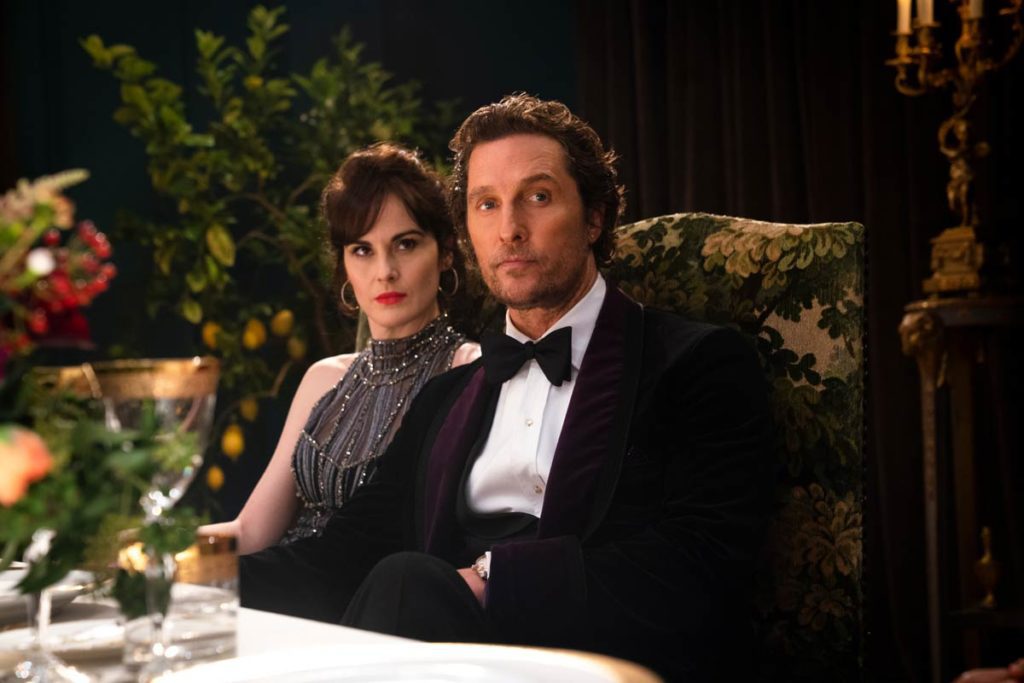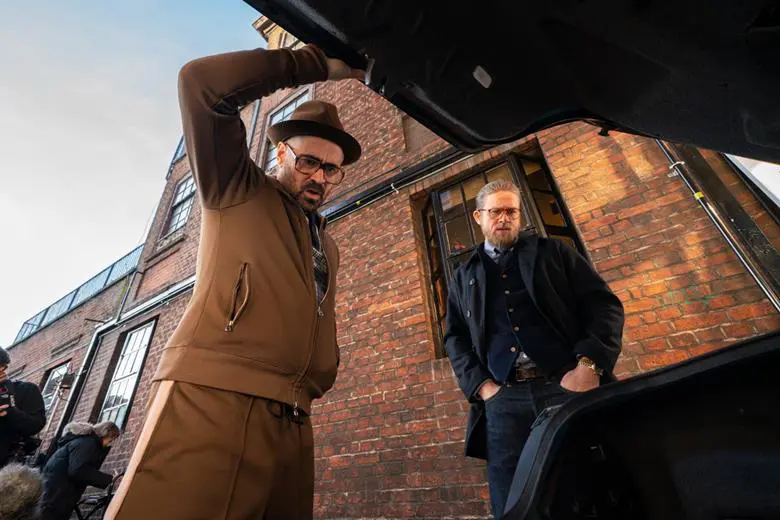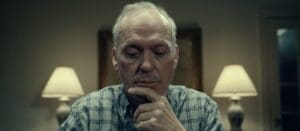Summary
London underworld story, Guy Ritchie style, but with maturity and Hollywood faces to reward the two decades experience.
To some, Guy Ritchie is a British film industry institution; the modern, cocky kind of director, like Shane Meadows or Ben Wheatley, perhaps. At least it seemed that way twenty years ago when Lock, Stock, and Two Smoking Barrels and then Snatch brought him to public attention… Sherlock and – of all things – Aladdin may have taken him in some other (Hollywood?) direction, but The Gentlemen has brought the old Guy Ritchie back to us.
Ritchie’s old gangsters-in-sharp-suits style has grown up, become laid back and is now partly populated with Hollywood stars. The self-proclaimed “king of the jungle” in The Gentlemen has ambitions to move up in the world too: he’s an American incomer working with “the toffs”, lords and dukes in stately homes across the UK, who provide infrastructure and connections for his lucrative London-based marijuana business. This is Mickey Pearson, played by Matthew McConaughey, who looks strangely comfortable in a British environment and in a polar opposite role to his tense Rust Cohle in True Detective. Pearson seems an effortless role for McConaughey, who is the “emotionless” center of the story, while everyone else buzzes, bows and stumbles around him.
Pearson, you see, has developed his weed world sufficiently that he feels ready to retire. He’s picked someone to sell the business to; but as his canny Lady Macbeth wife (Michelle Dockery) advises, such a position can make a businessman look weak. Newspaper editor (Eddie Marsan) wants to pull him down a notch, investigative reporter Fletcher (Hugh Grant) wants to blackmail him, the Chinese gang leader (Henry Golding) wants to cut into his territory, and unknown others want him dead.
READ: Movies like Sherlock Holmes you must watch
In essence, that’s the scenario, presented for the most part as a story that Fletcher is telling Raymond (Charlie Hunnam, who I can’t quite believe was Nathan in Queer as Folk twenty years ago), Pearson’s right-hand man, in a longwinded approach to eight-figure blackmail. Presenting it in that way means that – unfortunately – the plot arrives in pieces, partly due to Fletcher’s nervous fumbling/flirting. This gives The Gentlemen the impression of a somewhat meandering mess at first; but if you watch it and find yourself feeling that way, do not despair: the pieces reveal themselves to actually fit together in unexpected moments. By the end, the film shows itself to be well constructed; like Lock, Stock was, but without so much frantic violence.
(Perhaps I should advise that the 18 rating is declared on the BBFC certificate screen to be purely based on “very strong language”. I wondered as the film started, can that really be enough for an 18 certificate? Guy Ritchie, writer as well as director here, actually sprinkles the film with at least 18 times more c-words than bullets!)

So there is a twisty plot, plenty of action (car crashes, fisticuffs, people “falling” out of windows, etc, etc.), despite it being fairly unhurried… and there is also humor, of course. Ritchie criminals from back then were the “loveable rogue” sort, and for the most part, they still are. Serious moments are glossed over quickly and (apart from McConaughey, the serene center) slang-heavy dialogue is delivered by caricatures and clichés. The contrast between the many drug-related dramatis personae (customers, addicts, vendors, supply chain, etc.) makes for a good deal of the humor, and this contrast does involve liberal use of stereotypes; at least one other review I’ve seen has called The Gentleman racist, but I didn’t see it that way: one of the characters was certainly racist, but otherwise, the (not unkind) stereotypes were simply tools to tell the story.
But back to the humor: Colin Farrell, oh, Colin Farrell. It wasn’t clear when his boxing coach character entered the film what he and “his boys” had to do with the world of cannabis crime, but his entrance was a sublime blend of poise, honor, strength and Blarney. Coach was by far my favorite character: the one who showed the strongest personal moral compass, sharp thinking and just enough nuanced personality for a fairly minor character.
Apart from the shaky start I mentioned earlier, the only other flaw I found with The Gentlemen was its patchy use of production flourishes. For example, in one scene a yellow pen circled some pertinent faces, in another a single use of slang received subtitles. The film worked best, in my opinion, when the dialogue and story were allowed to be enough, without showy elements added.
Overall, great to have Ritchie back on form.
More Stories



